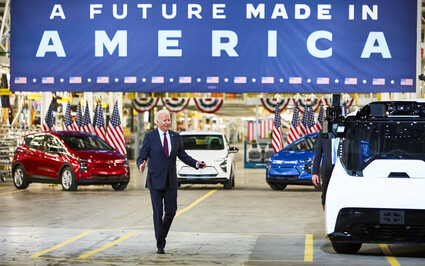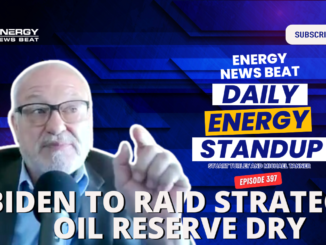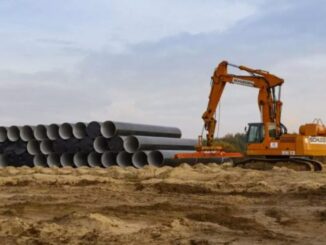
The Biden administration needs help understanding the meaning of “foreign entity of concern” (FEOC) as this term relates to investing billions of taxpayer dollars into bolstering the supply chains for materials critical to electric vehicles and renewable energy.
The Bipartisan Infrastructure Law and Inflation Reduction Act allotted billions of dollars for establishing secure and reliable supplies for the minerals, metals, and materials needed for EVs and low-carbon energy infrastructure in the United States.
Congress included stipulations in these bills that require energy transition minerals to be mined or processed in the U.S. or a free trade agreement country, and prohibits the involvement of an FEOC in order to qualify for the generous tax credits and funding offered.
Earlier this year, S&P Global analysts forecast that the U.S. would come up short of the minerals and metals required to meet Biden administration energy transition goals.
“This new comprehensive analysis shows that the Inflation Reduction Act is indeed transformative on the demand side,” said S&P Global Vice Chairman Daniel Yergin. “However, challenges remain in securing supply of critical minerals needed to meet growing demand and achieve its goal of accelerating the energy transition.”
These challenges include U.S. permitting timelines that are much too long to fit within the White House’s clean energy ambitions.
“Timely and transparent permitting is a fundamental operational challenge to supplying metals for the energy transition, particularly in developed markets such as the United States that have high levels of transparency and both political and civil society scrutiny of policy,” said S&P Global Market Intelligence Executive Director Mohsen Bonakdarpour.
Loosening up the definition of FEOC would broaden the scope of critical mineral suppliers that meet BIL and IRA eligibility.
“This smacks of regulatory overreach and purposeful misinterpretation of the Bipartisan Infrastructure Law (BIL), designed to ‘bolster the growth of domestic and friend-shored battery materials processing and manufacturing,” Ann Bridges, co-author of “Groundbreaking! America’s New Quest for Mineral Independence”, told Metal Tech News.
Reinterpreting Congress
When drafting the Bipartisan Infrastructure Law, Congress described an FEOC as being “owned by, controlled by, or subject to the jurisdiction or direction of a government of a foreign country that is a covered nation.”
Covered nations include China, North Korea, Russia, and Iran.
Now, DOE is seeking input on its reinterpretation of the terms “government of a foreign country;” “foreign entity;” “subject to the jurisdiction;” and “owned by, controlled by, or subject to the direction.”
Using Merriam-Webster definitions of the keywords that DOE is seeking to reinterpret, an FEOC is defined as: An organization, business, or governmental unit owned by; restrained or directed by; subject to the authority of; or under the restraining or directing influence of China, North Korea, Russia, or Iran.
The Biden administration, however, is not seeking a literal definition of what Congress wrote into the Bipartisan Infrastructure Law and Inflation Reduction Act.
Instead, DOE has rolled out its own proposed “interpretive guidance” for a foreign entity of concern.
Under this guidance, an FEOC would be incorporated in, headquartered in, and operating within China, North Korea, Russia, or Iran; and the government of the covered nation also directly or indirectly controls at least 25% of the company’s voting or equity interests or board seats.
Companies that operate outside of China, North Korea, Russia, or Iran but contract with or license technology from any of these nations must retain certain rights over their operations.
“The proposed guidance will provide clarity and certainty to the U.S. automakers, battery manufacturers and producers of critical minerals. It will encourage these industries to invest in diversified and resilient critical mineral and battery supply chains,” said John Podesta, who is serving as renewable energy advisor to the White House.
The guidance will also temporarily exempt certain critical minerals from FEOC restrictions altogether. The Treasury Department, which is working with the Internal Revenue Service to implement EV tax credits subject to FEOC stipulations, said the exemptions only account for 2% of materials used in batteries.
Green energy shove
Silicon Valley author and critical minerals expert Bridges contends that the White House is attempting to circumvent the domestic energy materials sourcing rules intended by Congress to push forward the administration’s own clean energy plan.
“Biden’s Department of Energy is once again muscling aside Congress’ intent, representing both Democrats and Republicans, in a last-minute effort to shove through a green agenda that consumers don’t want, our country can’t afford, for technology simply isn’t ready yet for large-scale deployment,” she wrote in an email to Metal Tech News.
“The appropriate department to determine which country is a Foreign Entity of Concern seems to fall squarely in the Department of State instead – and requires CFIUS (Committee on Foreign Investment in the United States) review, too,” she added.
DOE has published its proposed interpretation of the statutory definition of FEOC on the National Register for 30 days of public comment before official adoption.
ENB Top News
ENB
Energy Dashboard
ENB Podcast
ENB Substack



